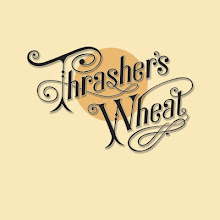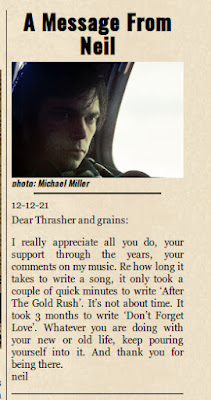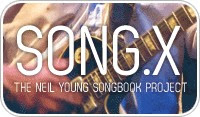Why is our protest music stuck in the past? | Washington Post
Over the years, we here @ TW -- and many, many others -- have tracked the decline of "protest music".
From It’s a brave new world. Why is our protest music stuck in the past? | Washington Post by Chris Richards:
These are wild and anxious times for our wild and anxious planet. So why do the most visible protest songs of the Trump era feel so inert? From the numb thud of “This Is America” to the woke winks on the new Taylor Swift album, contemporary protest pop feels increasingly prominent, deeply unimaginative and embarrassingly insufficient.So why has "protest music" gone "inert" as Chris Richards contends?
As it stands, the two most widely applauded protest anthems of Trump’s presidency are “Love It If We Made It,” by the British band the 1975, and “This Is America,” by Childish Gambino, the nom-du-rap of Hollywood polymath Donald Glover. The former was named the best song of 2018 by Pitchfork in December. The latter won record and song of the year at the Grammys in February. “Love It If We Made It” recites the ugliest global headlines of the past few years while flashing a hopeless smile. “This Is America” holds a mirror up to our violent, racist, violently racist system, then gives a blank shrug.
What are these songs trying to achieve? Both offer hyper-topical verses, flanked by titular refrains that radiate heroic despair — and by setting those feelings of total powerlessness to such patently urgent music, the effect becomes strangely self-canceling. You feel seen, but you also feel small.
Obviously -- for us -- the penultimate protest song is Crosby, Stills, Nash, and Young 1970 song "Ohio". The song "Ohio" is "perhaps the most powerful topical song ever recorded: moving, memorable, and perfectly timed. But it turned out to signify the end of the era of protest songwriting which had begun with the folk revival rather than a thrilling rebirth", author Dorian Lynskey writes in the book 33 Revolutions per Minute: A History of Protest Songs, from Billie Holiday to Green Day.
Neil Young wrote in the liner notes of the Decade album about the song he wrote for CSNY "Ohio": "It's still hard to believe I had to write this song. It's ironic that I capitalized on the death of these American students. Probably the most important lesson ever learned at an American place of learning. David Crosby cried after this take."
Living With War by Neil Young - 2006
In 2006 -- as Gulf War II raged -- Neil Young was urged to deliver another "Ohio" -- a song which helped change public attitudes and marked an important turning point in the Vietnam War. In response to the challenge, Neil Young released the anti-war, protest album LIVING WITH WAR was released to a firestorm of criticism and controversy. Neil Young called the music "Metal Folk Protest" like Phil Ochs and Bob Dylan's.
Upon release, Neil Young stated that he felt compelled to write his new album "Living With War" because he was tired of waiting for young protest singers to pick up the torch.
What followed was an inspired reaction from "younger singer-song-writers" who maintained that they were holding the flame. A provocative article titled Why Neil Young Is Wrong by Stephan Smith-Said has generated a lot of attention. This article resulted in Neil establishing the Songs of Our Times page on the Living with War site, ass well as, a series of concerts called Songs of Protest.

Songs of Protest - Feb. 10th, 2007
Poster by McNevin Hayes
In 2008, the man whose song "Ohio" played a part in helping end the Vietnam war, admitted that "music can no longer change the world". Neil Young made the comment at the Berlin film festival which is screening "CSNY: Deja Vu".

"Music Can't Change World" - Neil Young
2008 Berlin Film Festival
Many argue that music can change the world while others argue that it never has and never will. Young responded with a post titled "A Song Alone":
"No one song can change the world. But that doesn't mean it's time to stop singing."
In 2017, Neil Young + Promise of the Real released a song and video titled "Children of Destiny". From Neil Young News @ Thrasher's Wheat: A Happy New Year for 2018's "Children of Destiny" on the state of today's "Protest Music": The protesting of state sponsored brutality and violence continues, but where are the musical anthems that capture the emotions of our times? From Billboard | 'Fear of Being Blackballed' Prevents Artists From Releasing Protest Music:
Neil Young was so shaken by photos of the four unarmed students killed by military gunfire at Kent State that he wrote "Ohio" for Crosby, Stills, Nash & Young right away. By the end of the week, it was playing on the radio. That was 1970. Now, in 2014, outrage over police brutality has become much more widespread, inspiring protests and "die-ins" nationwide for Michael Brown and Eric Garner, two unarmed black men killed in confrontations with cops. Days ago in Brooklyn, two NYPD officers were murdered while sitting in their patrol car. But this year will end without a defining protest song. ... "I think a lot of it is just due to fear of being blackballed and not making a living," Questlove of The Roots told Billboard, referring to the backlash the Dixie Chicks faced in 2003, when Natalie Maines told an audience that the band was "ashamed" that President Bush was from Texas. "We were like, 'Man, if a white woman can lose her career in the United States for speaking up for what's right, then shit, we'll get the electric chair.' I think that was the bottom line. And that just really rendered America silent."
Farm Aid 25: Growing Hope for America, Miller Park, Milwaukee on October 2, 2010
Labels: neil young, protest music, songs




















































 Human Highway
Human Highway

















 Concert Review of the Moment
Concert Review of the Moment





 This Land is My Land
This Land is My Land

 FREEDOM In A New Year
FREEDOM In A New Year









 *Thanks Neil!*
*Thanks Neil!*




![[EFC Blue Ribbon - Free Speech Online]](http://www.thrasherswheat.org/gifs/free-speech.gif)











 The Unbearable Lightness of Being Neil Young
The Unbearable Lightness of Being Neil Young Pardon My Heart
Pardon My Heart



 "We're The Ones
"We're The Ones  Thanks for Supporting Thrasher's Wheat!
Thanks for Supporting Thrasher's Wheat!




 This blog
This blog 
 (... he didn't kill himself either...)
#AaronDidntKillHimself
(... he didn't kill himself either...)
#AaronDidntKillHimself









































































 Neil Young's Moon Songs
Neil Young's Moon Songs




 Civic Duty Is Not Terrorism
Civic Duty Is Not Terrorism Orwell (and Grandpa) Was Right
Orwell (and Grandpa) Was Right


 What's So Funny About
What's So Funny About 


